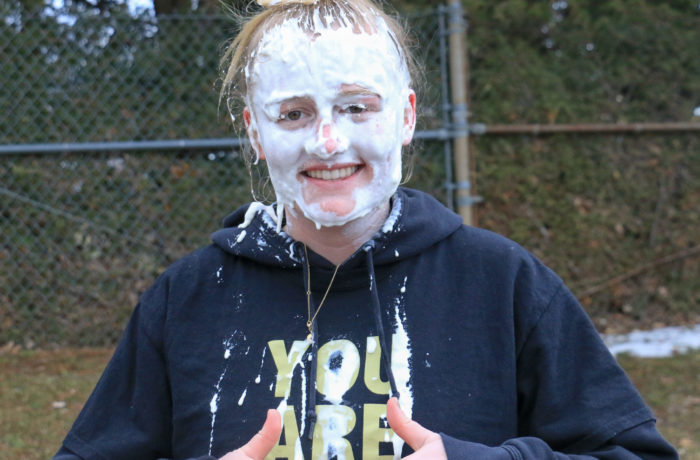By Maggie Nevens
Staff Writer
The Roy Room was energized on the evening of Feb. 20 as poet and educator J Mase III encouraged students and faculty members to participate in his talk, “How I survived the Gay Rights Movement as a Trans Person of Color.” At the first of Mase’s three events on campus, he worked interactively with groups to create a more informed and motivated community.
Mase, is the founder of awQward, the first ever trans and queer people of color specific talent agency. Identifying as black, trans, and queer, he elaborated on his personal experiences with injustice and encouraged students to stand up against discrimination.
Voices scattered among the 50 attendees, echoing labels such as Christian, male, heterosexual, able-bodied, wealthy, and others, describing the social identity of the typical individuals in positions of power.
Mase used this ice breaker to point out that those who are most discriminated against do not fall under those labels, more specifically, trans women of color.
Quotes from Mase’s old bosses were projected on the board illustrating the transphobia he has experienced in the workplace. He stressed the importance of establishments creating a space for transgender people that respects their work for what it is and not for how “inclusive” it may make them appear.

J Mase III captivates the St. Michael’s College community with his poetry during his talk on Tuesday, Feb. 20 in the Roy Room in the Dion Student Center.
Mase encouraged students to be an accomplice who is willing to fight in solidarity with marginalized communities rather an ally who merely projects the image of solidarity. He expressed the urgency of understanding what solidarity really means because of the life or death implications that ideals and politics have on marginalized communities. See “What is solidarity?”, right.
“We are often taught to be polite and civil to things that are actually trying to kill us. The reality is that when we are talking about systems of white supremacy, systems of transphobia, systems of homophobia, they are so interconnected to colonization it’s literally stuff that we cannot be silent about,” Mase said.
Through poetry, Mase attempts to break the silence and speak up against the injustices within American culture.
The audience snapped and chuckled as Mase finished with his poem, “White People Dancing in Their Natural Habitat”, illustrating how “progressive” white people are often blind to their own ignorance and the true reality of oppression.
“This poem refuses to acknowledge the color of the ivory paper that it’s printed on
This poem agrees with your politics but not your tactics
This poem wants you to know that
#AllStanzasMatter”
In a separate interview, English professor and poet, Greg Delanty, discussed the power that poetry has to create empathy within the world.
“We (poets) see the sameness in everything. And we break through the skin of difference which, unfortunately, we tend to define ourselves by, and poetry teaches us to break that skin and become the other person or other being,” said Delanty.
While the event presented itself humorously and lively, Mase’s message of supporting and fighting alongside marginalized groups stayed with some students.
“I used to think that just bringing awareness to those issues was a huge step towards making a more accepting community. But after the talk, I really realized that that’s just not enough,” said Pam Lovely, ’20.


